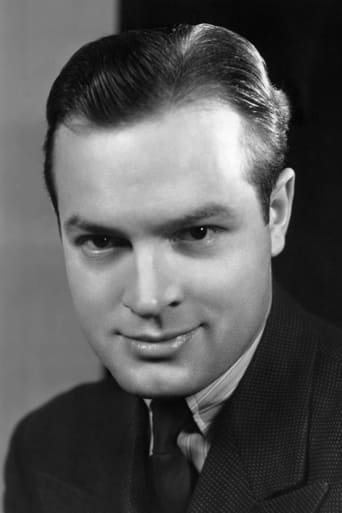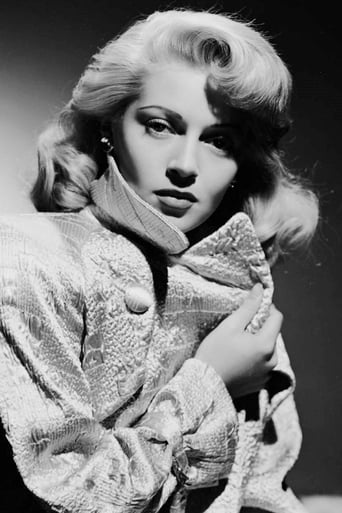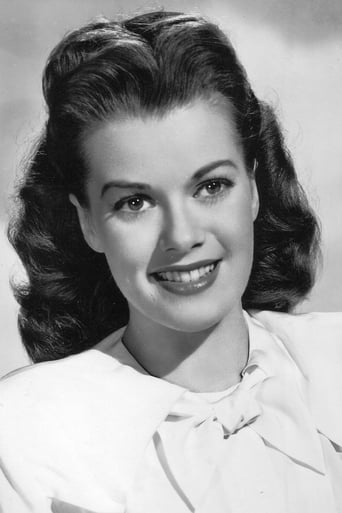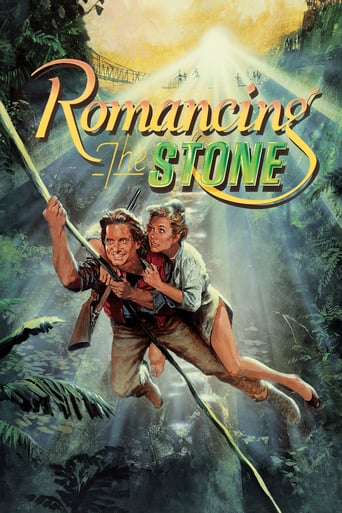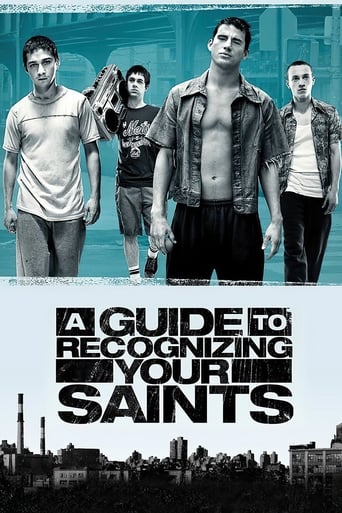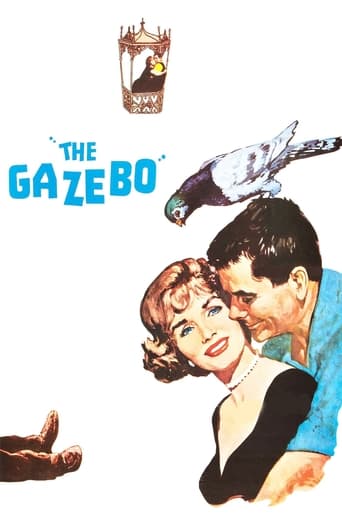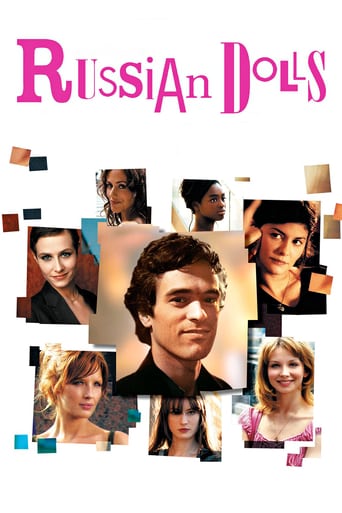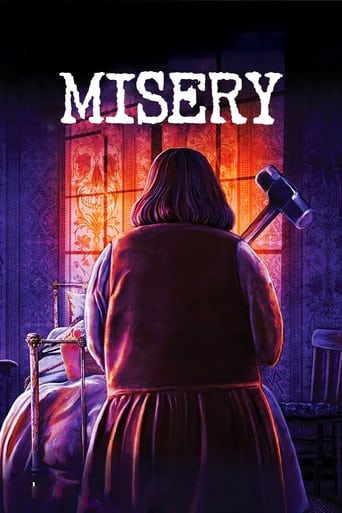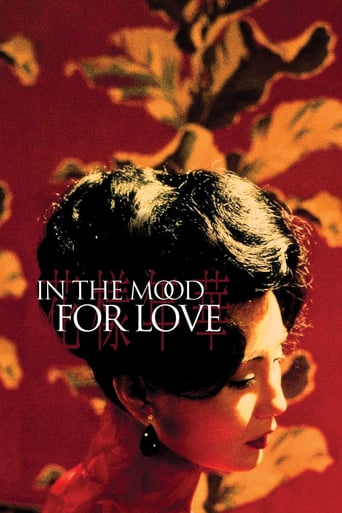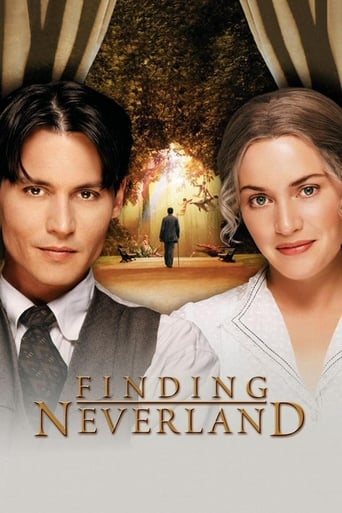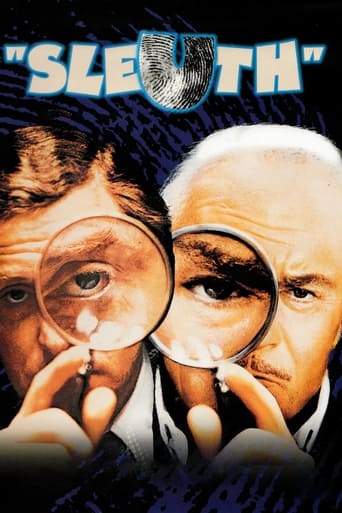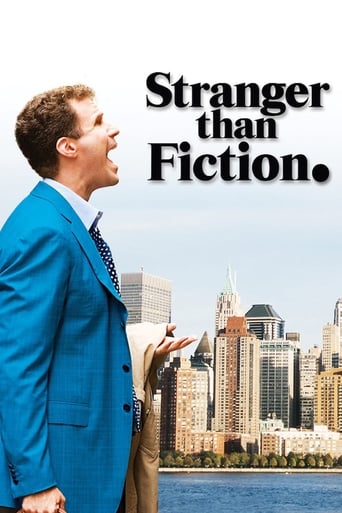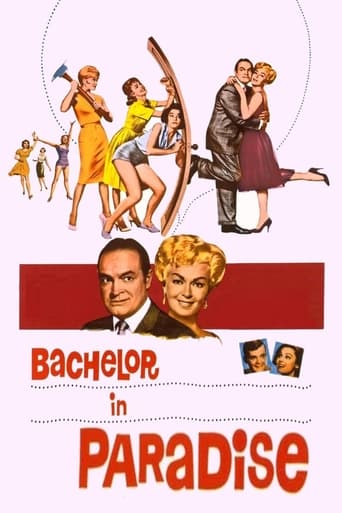
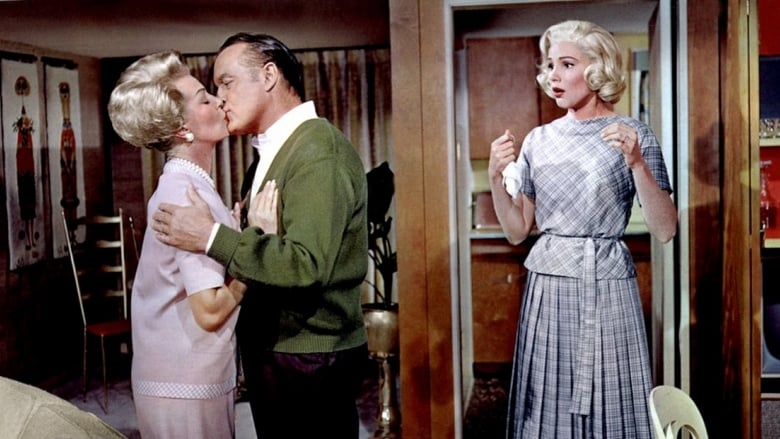
Bachelor in Paradise (1961)
A. J. Niles is the author of a series of 'Bachelor Books'. These books describe the romantic life of a bachelor in various cities of the world. But when he runs into trouble with the I.R.S. for back taxes, he needs to write another book fast, to pay them. His publisher decides a book about life in the American suburbs would be a hit and settles him into Paradise Village. One bachelor plus lonely housewives equals many angry husbands.
Watch Trailer
Cast


Similar titles
Reviews
Bob Hope is oddly cast as the playboy writer, Adam Niles. He has been living in France for many years...having a great time with the ladies and writing books about love, sex and romance. But when he learns he owes the IRS $600,000, he's got to change his wild ways and economize while he works on his next book. So, instead of a gay life in Paris, he's forced to move to suburbia where he is an oddity indeed. It seems that in the planned community of Paradise he's the only bachelor. This film is very much like most of Hope's later films. Instead of doing, he spends the story throwing out one liners--mostly very sexist and unfunny ones. In many ways, it's like he's making a guest appearance in the films instead of being the more active funny many of his earlier film career. It isn't helped by having Lana Turner playing his straight man, so to speak as this just isn't Turner's forte. Nor does it help that the 58 year-old Hope is hopelessly miscast as a man who is like catnip! Because of this, it's definitely a movie more for his die-hard fans than the casual viewer. Now am I saying this is a bad film? No. It's pleasant and enjoyable at times and is a decent time-passer.
Bob Hope is AJ Niles, a writer notorious for having penned controversial books on the male/female relationship, and now finds himself exiled to Paradise, that being the name of the California suburban subdivision where he takes refuge. The character of Niles allows Hope full license to play out his comedic persona at its most familiar---the snide, self-satisfied deliveryman of one-liners meant to wither his target. Yes, this is Bob, the iconic performer of the Eisenhower 1950s, an entertainer whose shtick everyone in America was comfortable with. Even when buffoonery is called for, Hope projects arrogance and swagger; a case of the private man intruding into the public image. Lana Turner is Rosemary Howard the real estate agent who rents the house to Niles setting in motion a train of events that disrupt the whole community. Niles just can't help himself, anonymity is against his nature; he becomes the village Yentl, the meddling, intrusive busybody who dislodges the neighborhood's equilibrium and subsequently the lives of its residents. Lana Turner was once a cute, ingénue with acting potential until Hollywood manufactured her into a "glamour goddess." In this movie at age 40, Turner was well established as a self- conscious actress, plaster cast-stiff, without any real depth or emotive spontaneity in her performance. Every mannerism, ever walk is calculated for correct poise and posture. The make-up artists and hair dressers only accentuated this frozen appearance with painfully perfect application of cosmetics and a hair-do that could only be dislodged by a tsunami. There's not much to say about the storyline itself. Disgruntled with this "known libertine and seducer," the husbands sign a petition to evict the Casanova Niles from his home and oust him from the community. The females, excepting a few puritanical matrons, protest this and rally in his defense. Niles was only trying to help them make their marriages more exciting; he was a public servant, a benevolent family counselor. That tall pair of actors Paula Prentiss and Jim Hutton are once again teamed as a romantic couple, here a married one, who are the focus of Nile's ministrations. The movie is dated, a cultural commentary of the era. Unless you're a big fan of Bob Hope or are just interested in opening a time capsule from a world long buried, pass this one by. For being a historical curio, I give it a "3."
Bob Hope (and a stunt double used in kissing scenes !) is a writer of dirty books who is caught out by the IRS and goes to write a book about suburban America in a ticky tacky housing estate in California called Paradise Village.The normal pratfalls occur, including with a husband with a Morris Minor (?) and one of those drive in restaurants like in "American Graffitti".The stars drive around in swoopy convertibles provided by Chrysler, with the witless suburbanites driving around in podgy, old fashioned Chevrolets and sidevalve Fords. Product placement – TWA airlines.
Long time ago I was surprised when I realized that the director of "Bachelor in Paradise", was the same person who made the masterpiece "The Incredible Shrinking Man", and the one behind cult classics as "It Came from Outer Space", "Creature from the Black Lagoon", and "Tarantula"; not to mention fillers as "Monster on the Campus", and hundreds of TV episodes from all kind of series, from "Dr. Kildare" to "The Love Boat". Arnold was not new to comedy: there are indeed comic elements on all the horror movies mentioned above, but moreover, a year before he started shooting this MGM glossy adaptation of a story by Vera Caspary (the same lady who wrote both "Laura", and "Les Girls"), director Jack Arnold --who I guess Andrew Sarris must have classified very low in his Olympus of filmmakers-- had a hit with the British comedy "The Mouse That Roared", with Peter Sellers playing different roles, including the Duchess of Fenwick, the senile ruler of the littlest country in Europe. It is a story of little people and little minds, treated with affection and a kind of humor far from what audiences laugh about today. "Bachelor in Paradise" is somehow in the same vein: it is a funny and affectionate view of how little minds react when confronted with different attitudes about sex, which --up until the days of the reign of the Hays film code-- was treated rather hypocritically in American cinema. Everybody was doing all type of positions and gender combinations, with all kinds of adornments, except "Hollywood creatures". For the early 1960s, though not as radical as it may sound, "Bachelor in Paradise" suggested sex was more fun than accepted in regular films, and this was its main attraction, not Bob Hope, Lana Turner, or the new coupling of Paula Prentiss and Jim Hutton. Even I, who was 10 years old and lived in the city, far away from a suburb like Paradise, found it more daring than the comedies in which Doris Day played a virgin with tired facial tricks, as 1959's "Pillow Talk", which incredibly won the Best Screenplay Academy Award. I had not seen "Bachelor in Paradise" in decades... but when I did again I found it decidedly proto-Altmanesque, the kind of comedy that Robert Altman would have been doing in the early 1960s, probably with a more acerbic approach. Only the music industry had teased us with multiple releases of the music Henry Mancini composed for the movie. Now we can watch "Bachelor in Paradise" again, restored, in wide-screen and the flat color cinematography of those years (with few exceptions, everything was as bright and clear as the images in television sets). However it must be seen with a 1961 frame of mind. If you had not been born yet, do a little research. It does help a lot to appreciate a film about sexual life of the Americans without showing what they were doing in cars, bedrooms, and bushes, when the movie was made.


